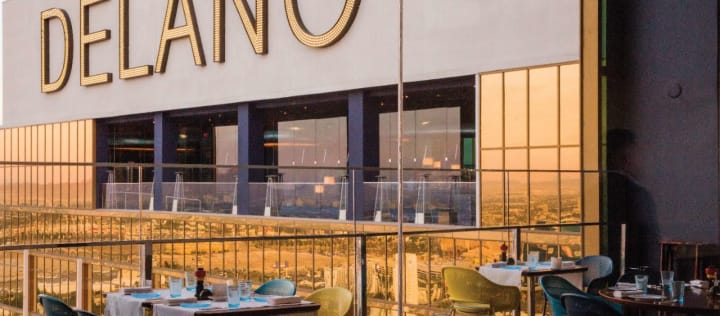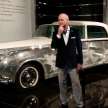
Claude was thirteen. He walked down an empty two lane road, avoiding puddles so that the rain water wouldn't get to his feet, through virtually disintegrated shoes, his only means of transportation. He accompanied his older sister and his mother, on the way back to their very humble home from the local store, on Washington state's rural Kitsap Peninsula. It was summer, 1945.
Claude's eldest of two brothers was Jim, 20. He had not been heard from for six months. An infantry mortarman, Jim's unit had been diverted from north Africa to northern France, into the heart of one of the most brutal military clashes of all time, later known as the Battle of the Bulge. It would be the last stand of the Third Reich. Scarce news had reported horrific fighting, then victory in the battle for the allies.
There was great optimism in America as this family, humbled like so many, walked along the road that day. There was much speculation that the US and her allies would very soon be victorious in the war. But at that moment, young Claude felt only the need to do anything he could to shield his twice-widowed mother from the potential news of the loss of her eldest son. He felt worried, helpless, and carried more stress than any kid should.
The sound of someone running through the nearby trees drew the family's attention, and out of the forest ran Stan, the middle brother. He had taken a short cut to catch up to his mother and siblings. He was out of breath and excited, carrying letters. Stan had word from Europe. Jim was alive.
Nearly surrounded in the Battle of the Bulge, Jim and his squadron had taken the steel plate out from under their mortar, allowing the shells to drop dangerously close to them as German troops advanced too near for normal mortar fire. They had retreated into the ruin of a village bell tower, where Jim's lieutenant was killed by a sniper. Then a grenade came through the window, sending shrapnel into Jim's cheek and ankle. He awoke in a POW camp, where he would spend those six months unable to get word to his family. With the war ending and his captors surrendering, he finally had that opportunity. Starved, wearing rag German uniforms issued by his captors, he had been marched toward the American troops, who, thankfully, had realized these were not German soldiers, but prisoners of war.
As the sun set, the family suddenly had a bounce in their step. Jim would make it home just as the war ended, awarded a Bronze Star and Purple Heart, fully recovering.
His youngest brother would be forever grateful for that moment, walking down the quiet road. The shoes didn't matter anymore. Nothing material really did. He felt the weight lift as his mother smiled, and realized how one bit of good fortune could change a person's situation and outlook, from one second to the next. Others he knew were not so fortunate, and his thoughts shifted to helping them. It would affect his values, and how he treated others, for the rest of his life.
Thirty years later, Claude was a professor of Archaeology, living with his wife and four kids, I the youngest. He was teaching at the University of Nevada in Las Vegas. Whenever my father came across the downtrodden, or the disenfranchised, he was empathetic to a fault. His generosity, when encountering such circumstances in the lives of others, had come to be the stuff of many a dinner conversation. Like him, I am the youngest of four. By the time I was 10, my brothers and sister and I would often hear the stories. I was at times skeptical of the beneficiaries of my father's generosity. Growing up in Las Vegas, it was easy to believe everyone was running some sort of game on everyone else, all the time.
Dad was forever returning lost articles, purses, money. He loved returning lost cash to people who thought they'd never see it again, and then refusing any reward. Then one day in the early 1970's, he was in downtown Las Vegas when a man approached him and asked for help. The man was well dressed, but looked as if he had been roughed up. He wore a nice tweed suit, but had apparently taken a tumble. He explained that he had been mugged. He said his wallet had been stolen, and he was just trying to get home to Los Angles.
My father was anything but wealthy. But he felt the man was telling the truth. The polite man had a bruised face, and seemed shaken. He was a black man, and in those days especially, when Las Vegas was known as the "Mississippi of the west," my father knew it could be dangerous for this man to be asking strangers for a hand. Dad told him he had no money for him, but he would buy him a bus ticket home to Los Angeles. It was less than $20, purchased with my father's credit card. The man insisted on knowing the name of this angel, and told Claude adamantly that he would pay him back. Dad gave the man his name, but told him not to worry about it, and bid him farewell.
When my father told us the story at the dinner table, we were more than skeptical. I told him the guy must have found a way to cash the ticket in. He said he doubted it. My cynicism failed to sink his soaring spirits, generated by his good deed. Later, the episode became a running joke. I would see a guy on the street, and tell my dad to get him a bus ticket, quick! He was unfazed.
In the summer of 2005, I was turning 41. Life had gone pretty well for Claude's youngest, and I was enjoying the trappings, still living in my home town of Las Vegas. Paulina, my very elegant girlfriend, asked what I would like for my birthday. I told her I wanted to try the new Alain Ducasse restaurant at the top of 64-story hotel on the Strip. We had yet to dine there, but I had stopped in to see that it had amazing views and a special table on a glass balcony. The chef was of course becoming an institution in town. I told Paulina I wanted to take my parents and my kids to dinner there. She said she would arrange it all, and that it was all to be her treat (she's still like that).

My parents arrived on time to find Paulina. My kids and I arrived a moment later. Paulina and I checked in. I was excited but a bit annoyed, as my two pre-teen kids with me had been fighting over some petty thing on the way. Also, the restaurant wanted the full names of all people in the party. I thought this very odd, but went along, happy they had reserved the spectacular glass balcony table. It was on the outside of a glass wall, leaving us virtually on display to the dozens of tables inside, as we admired the city outside. The sun sets late in Las Vegas in June, and we watched the lights on the strip turn on as we finished dessert. Paulina had arranged a special birthday cake. Everything was fabulous. My parents, academians who were never accustomed to such luxuries, thoroughly enjoyed themselves, and my father was visibly happy to know he would not be picking up the bill, which I was sure would have a comma in it. I enjoyed having him bask on display to the restaurant, looking like the patriarch he was.
Paulina sneaked inside, and I was certain she was seeing that the check would not be presented. But she came back out looking confused. I asked her if everything was ok, but she just looked at me bewildered, and shook her head. Before I could say more, the dinner check portfolio was brought by two waiters, who handed it to my father. He looked panicked for a second, until I motioned for him to hand it to me. But a waiter whispered in his ear, and dad stopped, and opened the portfolio. Inside, there was no check for our expensive dinner. There was only a note, hand written on a scrap of receipt paper, in block letters:
"Three decades ago, a generous man helped a man in need, with a bus ticket home. The generous man probably wouldn't remember. The man in need never forgot."
Las Vegas is my home town, and I know every trick in the book. I tried them all on that summer day in that posh restaurant, in attempts to get that staff to tell me who had picked up the check and left the note. They would give up nothing, even with tremendous financial inducement. Whomever had done this was the most powerful guy in the room.
My father smiled in the knowledge he had been right all those years. I ate my words for decades of ribbing him. My kids were blown away, and Paulina wondered what the hell she had to do to buy me a birthday present. But I had just received the greatest of gifts.
As my kids and I walked through the parking garage to my car that day, we had that bounce in our step. They talked about paying things forward. I realized their values had been altered, and I could see that 13-year-old in 1945, looking toward the future in that setting summer sun 60 years earlier, smiling.
The world's problems will not be solved by skeptics and cynics.
-Robert F. Kennedy
About the Creator
Jonathan Warren
Honorary Consul of Monaco, Chairman of the Liberace Foundation for the Performing and Creative Arts, 50 years in Vegas, Citizen of the world.
www.jonathanwarren.me






Comments
There are no comments for this story
Be the first to respond and start the conversation.